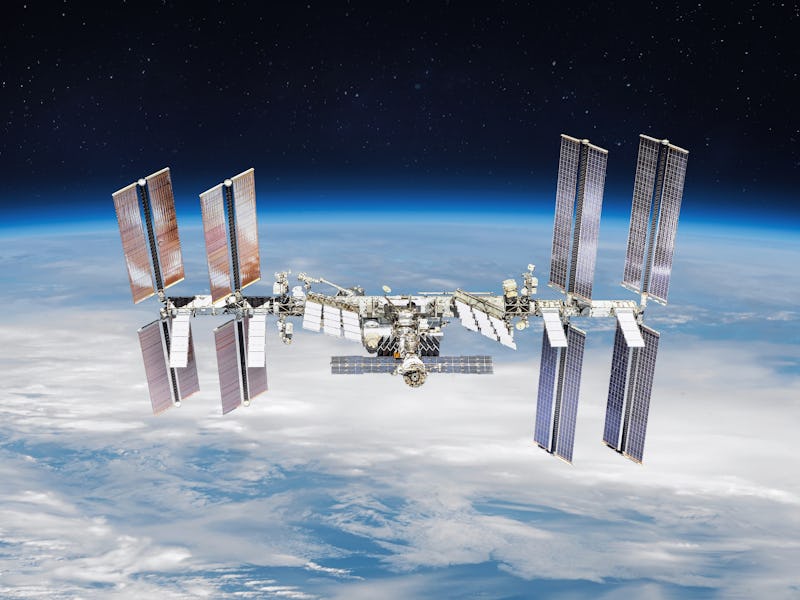Russia official warns of “uncontrolled deorbit” of ISS, a beacon of international space science
Dmitry Rogozin, the head of Russian space agency Roscosmos, issued a stark warning.

The International Space Station has become a point of contention as Russia wages war in Ukraine. On February 24, U.S. President Joe Biden declared international sanctions would affect Russia’s space program — Russia is a key collaborator in the International Space Station along with the American space agency NASA and the European Space Agency.
What’s going on — The sanctions take aim at “cut[ting] off Russia’s access to cutting edge technology,” according to a White House fact sheet. The measures were announced after Russian forces began a long-anticipated invasion of Ukraine on February 22.
On February 24, Biden made a speech in which he claims sanctions will “degrade [Russia’s] aerospace industry, including their space program.”
Dmitry Rogozin, the head of Russian space agency Roscosmos, replied via Twitter the same day. On the social media site, he asks in a post whether the U.S. wanted to “destroy our cooperation on the ISS?”
Rogozin also asks who might save the space station from “an uncontrolled deorbit?” He also notes in the tweet thread that the station does not orbit over Russia, but if it were to deorbit suddenly, the ISS risks “a 500-ton structure dropping on India and China.”
“The ISS does not fly over Russia, so all the risks are yours. Are you ready for them?” The post reads, according to Twitter’s inbuilt translation feature. The original posts are written in Russian and Cyrillic script.
Part of Rogozin’s tweet thread calling out the ISS specifically.
The second part of the post to do with an uncontrolled deorbit.
In a statement to Inverse, a NASA spokesperson comments on the overall operations of the ISS:
“NASA continues working with all our international partners, including the State Space Corporation Roscosmos, for the ongoing safe operations of the International Space Station. The new export control measures will continue to allow U.S.-Russia civil space cooperation. No changes are planned to the agency’s support for ongoing in orbit and ground station operations.”
What’s going to happen to the ISS?
Following Rogozin’s thread and the subsequent questions on what, exactly, the Russian space agency official meant by it, CNN published a report on the thread and its implications. Rogozin posted to Twitter following the report that:
“As diplomats say, ‘our concerns have been heard.’ NASA confirmed its willingness to continue to cooperate with Roscosmos through the ISS. In the meantime, we continue to analyze the new U.S. sanctions to detail our response.”
Rogozin is not the only official to voice doubt about the future of such scientific collaborations. British prime minister Boris Johnson was asked by an opposition member of parliament on the implications for cooperation at the station this week during a parliamentary session.
“We will have to see what further downstream effects there are on collaboration of all kinds,” Johnson says. “I have been broadly in favor of continuing artistic and scientific collaboration, but in the current circumstances, it’s hard to see how even those can continue as normal.”
The ISS may not be long for this world.
This new tension is the latest in a series of incidents calling the future operation of the International Space Station into question. The station was formed after a Russian space module joined with an American module in 1998. Construction was completed in 2011, and astronauts from 19 countries have visited the station since then.
But the station will require fuel and maintenance to continue operations. In December 2021, the Biden administration announced it would continue ISS cooperation through 2030.
Private companies like Axiom Space and Blue Origin are currently developing their own replacement stations, and Roscosmos plans to launch its own station in 2025. The Indian Space Research Organization indicated in 2019 that it may skip the ISS entirely, with plans to launch a 20-tonne space station.
The Ukraine conflict may not prove the tipping point that ends ISS cooperation. But as private companies and nation-states plan alternatives to the ISS, and the aging station continues to require fuel, its fate may be decided by other forces.